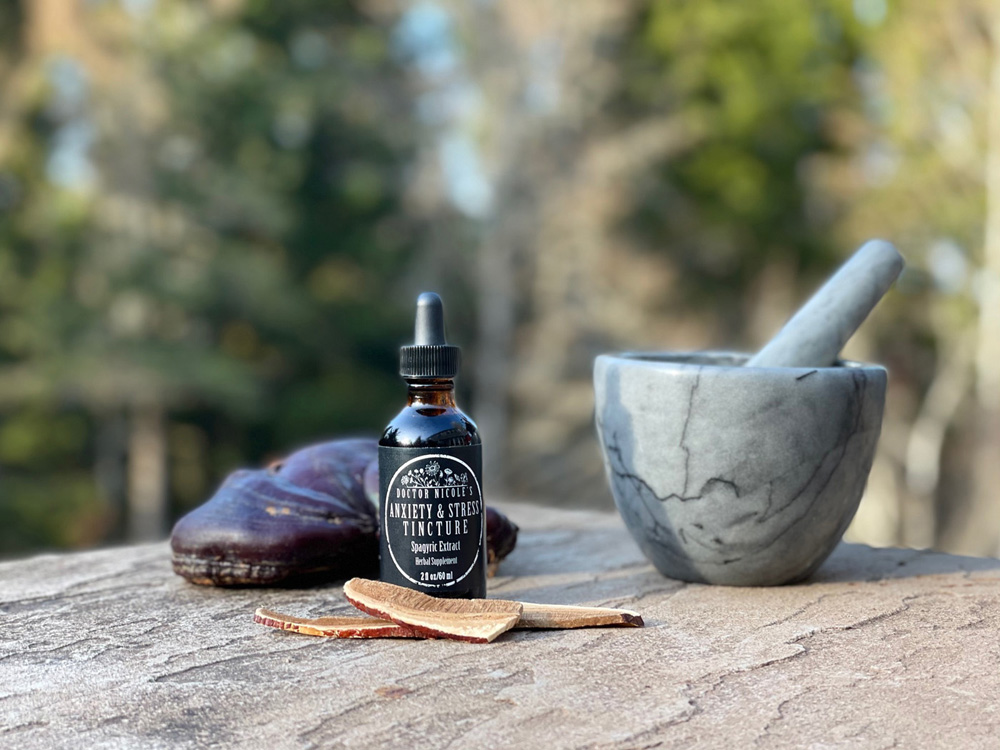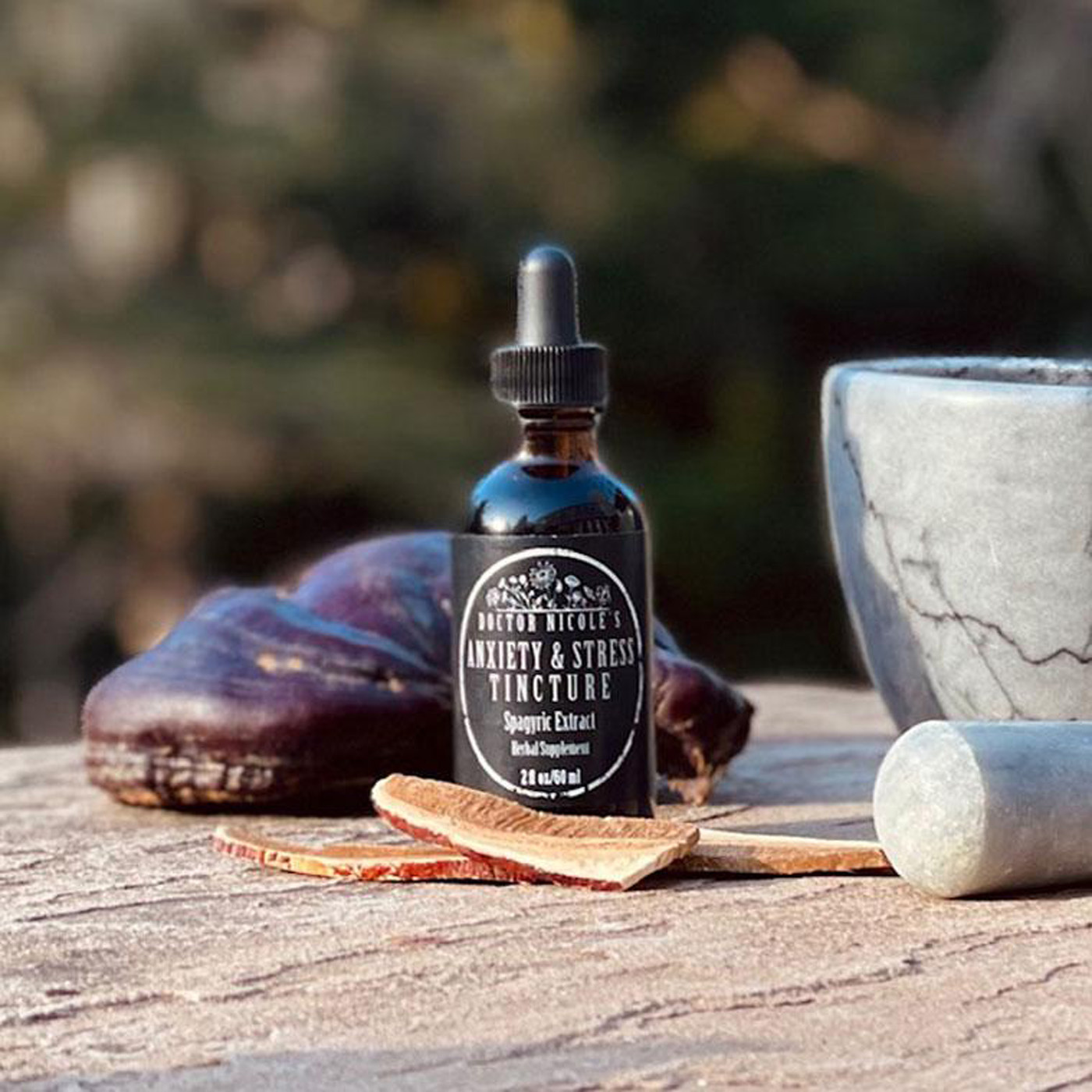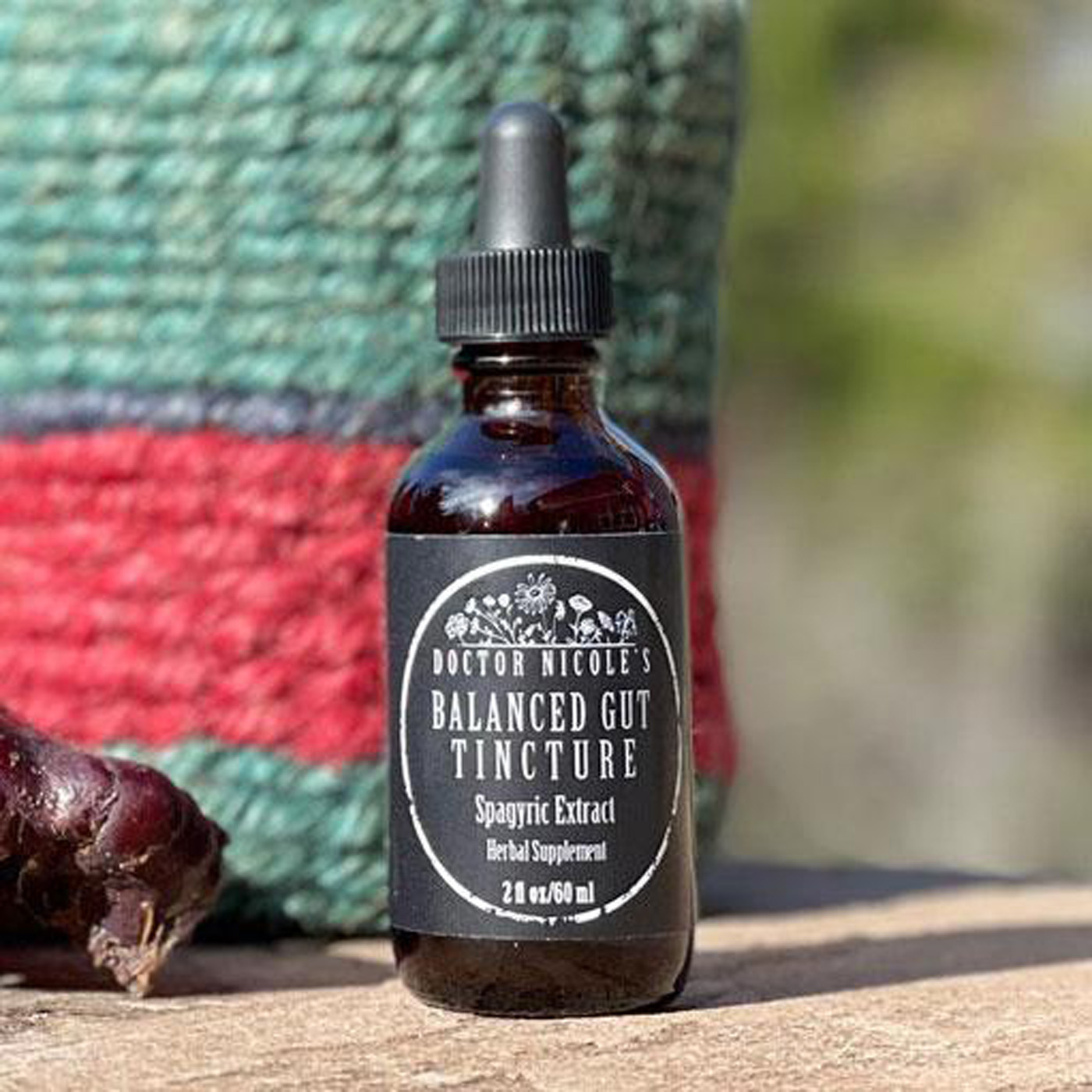The Surprising Impact of Chronic Stress
While chronic psychological stress has long been linked with a range of diseases, many don’t associate it with harming our microbiome. But researchers are investigating how stress negatively impacts gut health — and the findings may surprise you! Considering the bacteria that make up our microbiome are as numerous as the cells in our body, this has profound implications for overall health both physical and mentally, as “good” gut bacteria are the seat of well-being and are directly connected with a robust immune response, a reduced risk of depression and anxiety, taming inflammation, calming the symptoms of autoimmunity, and more. Needless to say, we need to actively support the health of the microbiome if we would like to lead healthy and happy lives. And some of the best ways to do this is through a fiber-rich diet, stress reduction practices, and herbal remedies.
Emotions and Gut Health
We’ve all experienced “butterflies in the stomach” when faced with a particularly stressful situation such as public speaking, a difficult conversation, or feeling over your head at work. During these periods, your body responds by pumping out the stress hormones epinephrine, norepinephrine, and cortisol. Typically a short-lived cycle, it usually won’t cause long-term damage to health. However, when you are under chronic stress, the body struggles to regain equilibrium and triggers a damaging cycle of increasingly poor health, which often leads to additional stress. It also significantly affects gut health.
A fascinating study published in The Journal of Physiology notes that chronic stress changes the gut microbiota, which in turn causes behavioral and physiological deficits in animal models. The team found that the metabolites produced by microbes in the gut, known as short-chain fatty acids (SCFAs), “have been implicated in gastrointestinal functional, (neuro)immune regulation and host metabolism”.3 Gut bacteria produce SCFAs when they digest fiber. This compound is the primary source of energy for colon cells, so SCFAs are essential for gut health. When the researchers fed SCFAs to mice, there was also a significant drop in stress behaviors. Moreover, they found that damage to the gut caused by stress was reduced.4 These findings indicate a high-fiber diet that is rich in plant-based whole foods is important for overall gut health. If you would like to try this diet for yourself, see my post, “Fertilize Your Gut? You Bet! Here’s How” to get started.
Another consideration is that high levels of stress hormones contribute to small intestinal bacterial overgrowth (SIBO), especially E. Coli, Serratia, and Proteus. William Davis, MD, a gut health specialist and author of Wheat Belly, notes that these microbes also “produce their own stress hormones that further feed their proliferation.”
Additionally, stress causes increased intestinal permeability, otherwise known as “leaky gut”. When the gut lining becomes permeable, “increased levels of microbial breakdown products such as lipopolysaccharide (LPS) more readily enter the bloodstream. Increased LPS causes greater release of stress hormones and increased release of mediators of inflammation such as IL-6, IL-1 beta, and TNF-alpha,” says Dr. Davis.1 This triggers the hypothalamic-pituitary-adrenal (HPA) axis to go into overdrive and release high levels of cortisol. When we struggle with elevated levels of this stress hormone, we gain weight, promote insulin resistance and high blood sugar levels, and, you guessed it, create further microbiome dysbiosis.
So how do we break this cycle? Keep reading as we will discuss a few of my tried and true methods for taming stress and supporting a healthy microbiome.

My 3 Favorite Methods for Calming the Stress Response
Let’s face it. Modern life is stressful, even when we have made strides to simplify, prioritize, and actively maintain boundaries. We often move at a breakneck speed and our to-do lists are bursting at the seams. Stress seems to be always humming in the background. But most of us realize we cannot continue at this pace and still enjoy happy and healthy lives. Here are a few ideas to help you to stress less, several of which may be unexpected!
Unplug. A regular device and media detox is one of the best ways to reduce stress. It can be anywhere from a few hours to several days or longer. Through this practice, there is a good chance you will experience less anxiety and depression, improve focus and learning, have better sleep, and lower stress levels.
Declutter. Spaces that are jammed packed with belongings can overstimulate our nervous systems, muddle our thinking, and create a feeling of overwhelm — all of which lead to stress. By clearing out the clutter in our physical environments, we help to cultivate clarity and calm in our minds. Give it a try and see!
Gratitude. One of my top daily practices, gratitude is a powerful method to instantly shift your perspective and reduce stress. Not only does gratitude encourage more joy in your life, but research has found the practice also helps us to make better dietary choices, exercise more, and are less prone to health-sapping addictions like smoking and alcoholism.2 It is an essential habit that not only reduces stress, but also boosts happiness and wellbeing.
Need more inspiration? Seeking moments of awe, spending time in nature, and laughter are also sure-fire ways to help tame stress in your life.
Herbal Support for Stress Management and a Balanced Microbiome
Sometimes we need a little extra help in managing stress and supporting a healthy microbiome. This is where herbal medicines come in.
My Anxiety & Stress Tincture helps your body adapt to stress in a healthy way, soothes the nervous system, and assists in relieving anxiety, depression, and stress-related insomnia. What’s more, it cools inflammation, boosts cognitive function, and supports brain health. It is a potent blend of ashwagandha, lemon balm, lion’s mane mushroom, and reishi mushroom.
To encourage a robust microbiome, there is no better herbal remedy than our Balanced Gut Blend. It contains reishi, turkey tail, and lion’s mane medicinal mushrooms, plus plantain, slippery elm, and marshmallow. These mighty botanicals calm inflammation, protect and soothe the intestinal tract, and support a healthy microbiome by controlling the overgrowth of candida while also feeding the “good” bacteria in the gut.
Are you ready to experience the power of natural remedies for yourself? Visit the apothecary today to learn more!
Nicole Apelian
Nicole’s Apothecary Products in this Post
References
- “Stress and the microbiome” Dr. William Davis. January 12, 2022, https://drdavisinfinitehealth.com/2022/01/stress-and-the-microbiome/
- “Gratitude is good medicine” UC Davis Medical Center. November 25, 2015, https://health.ucdavis.edu/medicalcenter/features/2015-2016/11/20151125_gratitude.html
- “Short-chain fatty acids: microbial metabolites that alleviate stress-induced brain–gut axis alterations”, Marcel van de Wouw, Marcus Boehme, Joshua M. Lyte, Niamh Wiley, Conall Strain, Orla O’Sullivan, Gerard Clarke, Catherine Stanton, Timothy G. Dinan, John F. Cryan. https://doi.org/10.1113/JP276431
- “How fiber and gut bacteria reverse stress damage” Tim Newman. Medical News Today, August 2, 2018. https://www.medicalnewstoday.com/articles/322636







